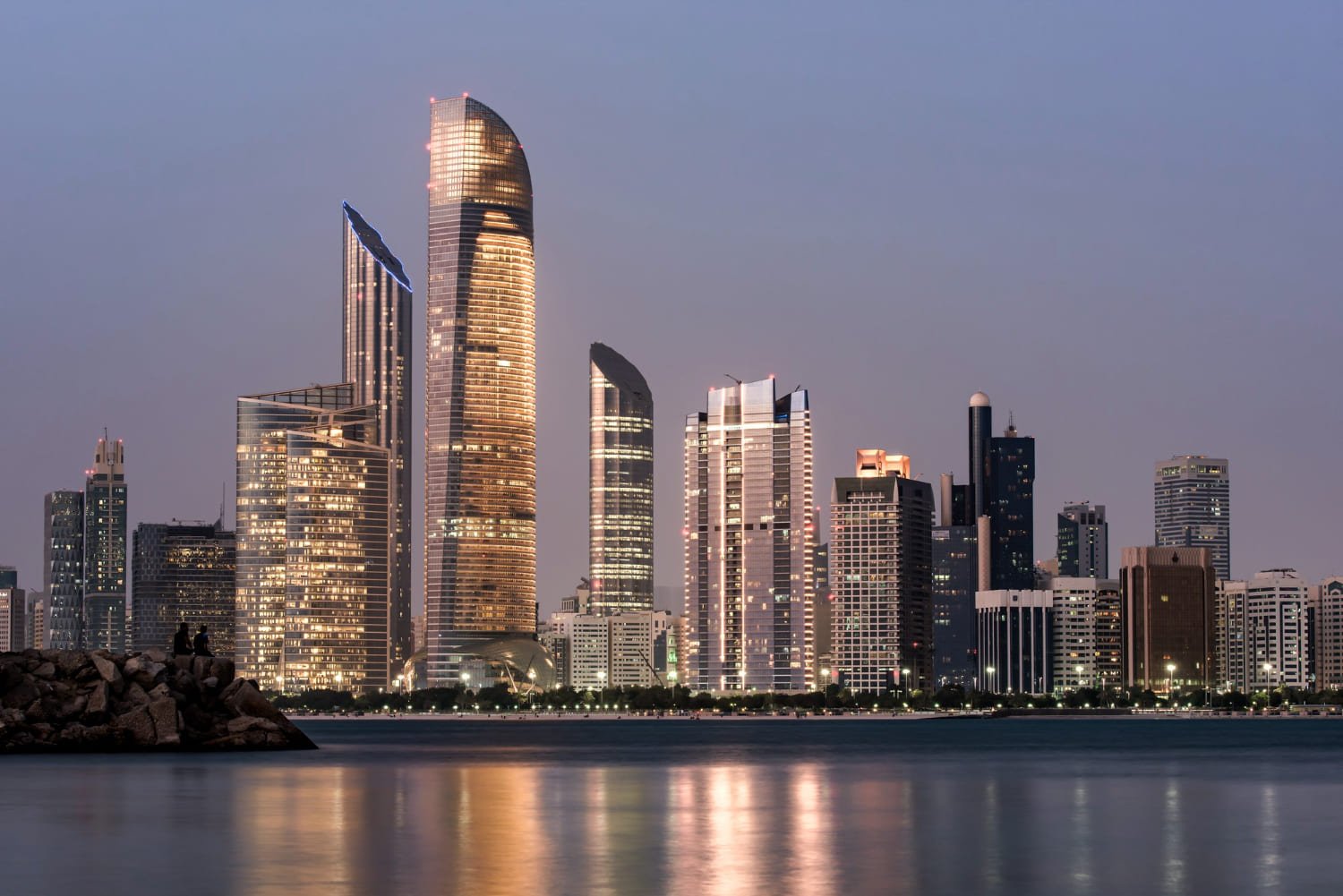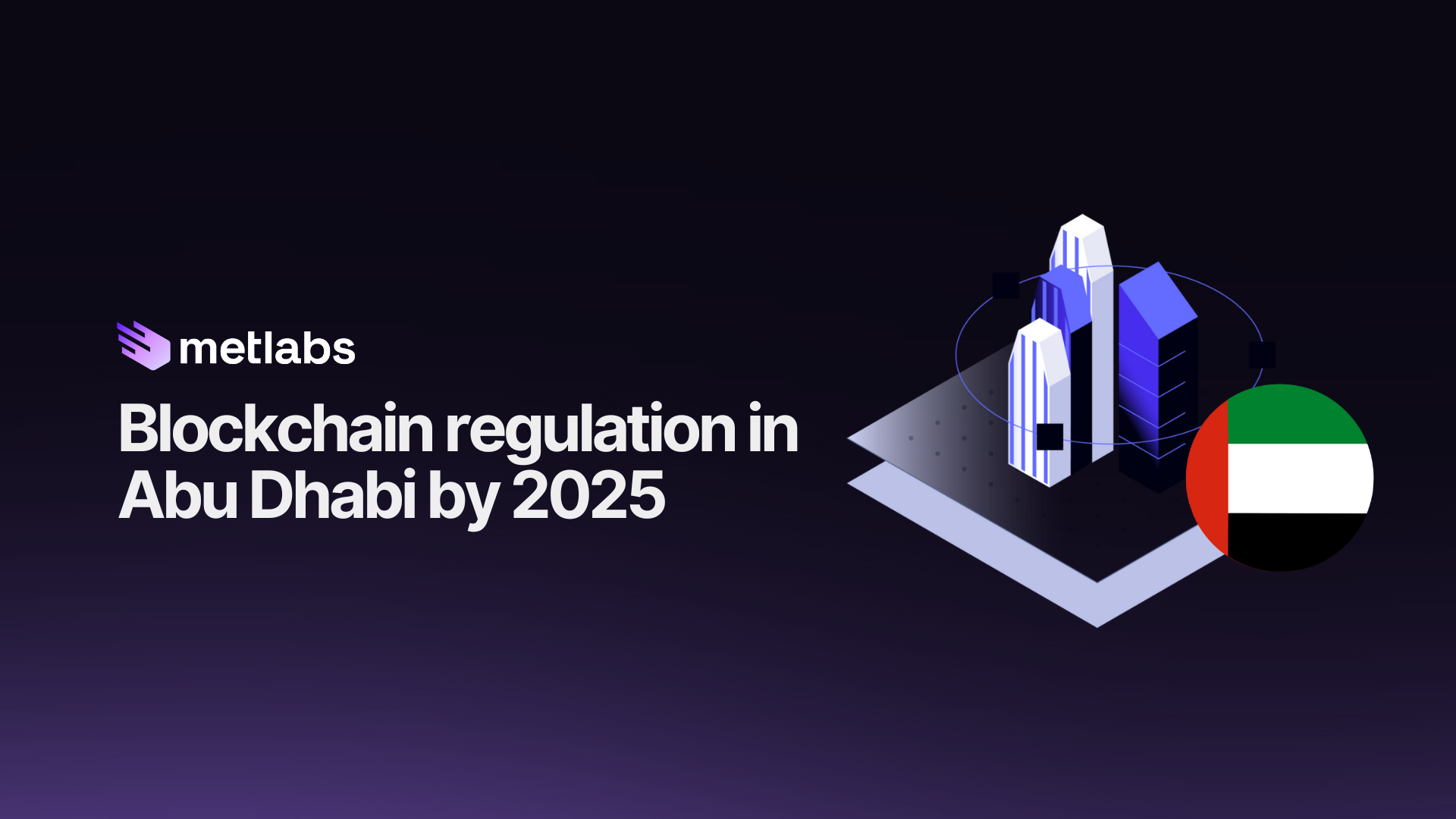The adoption of blockchain technology and asset tokenization is advancing at a rapid pace, but the real engine driving its global development is the existence of a clear, consistent and innovation-friendly legal framework.
Some countries have already established themselves as regulatory benchmarks, establishing specific rules for cryptoassets, DLT infrastructures and token issuance with legal backing. In this article we show you the relevant information about blockchain regulation in Abu Dhabi, which you can use as a guide if you are looking to operate internationally or evaluate different strategic locations.

Current legislation on blockchain and virtual assets in Abu Dhabi
Virtual Asset Framework (FSRA, ADGM)
Defines the legal treatment of virtual assets and establishes specific licenses. Includes strict requirements for governance, investor protection, AML/CFT and technology standards for the operation of DLT-based platforms. From 2025, prohibits privacy tokens and algorithmic stablecoins, introduces a clear process for the approval of Accepted Virtual Assets (AVAs) and strengthens capital requirements and intervention powers over digital products.
Cryptoasset Activities Regulations, CAAR (SCA)
Applies at the federal level outside of free zones such as ADGM and DIFC, regulating the offer, issuance and custody of cryptoassets. Requires SCA licensing, periodic audits and suspicious transaction reporting. Aligns with FATF AML/CFT guidelines and imposes sanctions for market abuse. Establishes minimum capital requirements for exchanges. Also requires business continuity plans and investor protection measures.
CBUAE Circular 2/2024 on stablecoins
Although FSRA is the regulator of virtual assets in Abu Dhabi, Central Bank Circular 2/2024 (CBUAE) sets mandatory requirements for AED-backed stablecoins. These must be backed 1:1 in dirhams, be specifically licensed and undergo regular audits. Algorithmic or foreign currency-backed stablecoins cannot be legally offered in Abu Dhabi or the rest of the UAE.
AML Regulations (ADGM)
AML and terrorist financing prevention requirements are integrated into the Virtual Asset Framework and other ADGM regulations. Authorized VASPs must comply with comprehensive KYC controls, transaction monitoring, mandatory reporting and periodic audits, demonstrating operational and technological capability to manage AML risks in DLT environments.
DLT Foundations Regulations (ADGM 2024)
This regulation allows the creation of foundations and legal vehicles specifically designed to operate structures on blockchain. It is widely used for the issuance of DAOs, tokenized funds and other tokenization structures in the ADGM. It establishes the legal personality of entities in DLT, defines applicable legal rights, obligations and procedures, and imposes a minimum of US$50,000 in assets for foundations.
ADGM RegLab Sandbox
The RegLab is the ADGM’s fintech sandbox. It allows startups and innovative companies to test solutions in blockchain, asset tokenization and DeFi in a supervised environment. Participants receive partial exemptions and regulatory support to validate business models, before moving on to full licensing under the FSRA framework.
Tokenization makes it possible to digitally represent real-world assets through blockchain, but for it to have legal value, it is essential that there is a regulatory framework that recognizes this operation. Abu Dhabi takes its own approach, establishing specific rules for the issuance, custody or trading of tokens. In this block we explain how asset tokenization is regulated from a legal point of view, taking an advanced jurisdiction such as Abu Dhabi as an example.
(here, from the country of your choice, copy and paste this section below)
Regulation of asset tokenization in Abu Dhabi
Asset tokenization in Abu Dhabi is primarily conducted under the FSRA’s Virtual Asset Framework in the ADGM. Tokens representing financial instruments, such as stocks, bonds or fund shares, are regulated as securities and require FSRA license for issuance, trading and custody.
Issuers must comply with transparency, investor protection and cybersecurity requirements, and undergo ongoing regulatory oversight. For the tokenization of real assets, such as real estate, commodities or art, the ADGM legal framework provides explicit recognition of DLT registries and enables the structuring of specific legal vehicles, thanks to the DLT Foundations Regulations. This facilitates the issuance of real asset-backed tokens (RWA tokens) with full legal certainty. In addition, smart contracts associated with tokenized transactions have legal validity within the common law of the ADGM.
The RegLab provides a flexible environment for testing new tokenization models in sectors such as real estate and energy. Abu Dhabi is actively promoting the integration of blockchain into its digital economy, with the ADGM serving as an international hub for tokenized funds and advanced investment structures. By 2025, the emirate has consolidated its attractiveness as a global financial center for asset tokenization, combining a sound legal framework, strict supervision and innovation-oriented regulatory openness.
Digital asset regulatory bodies and authorities in Abu Dhabi
Financial Services Regulatory Authority (FSRA, ADGM)
The FSRA is the authority that regulates financial services and digital assets in the ADGM. It oversees exchanges, custodians, token issuers and financial advisors. Its Virtual Asset Framework sets licensing requirements, governance standards and AML/CFT compliance. The FSRA is a pioneer in licensing DAOs and DeFi platforms under clear legal frameworks.
DLT Foundations Regulations (ADGM)
In force since 2024, this regulation allows the creation of legal structures in blockchain, such as DAOs and DLT foundations. It provides legal recognition for on-chain entities, defines rights and obligations, and establishes a framework for the tokenization of real assets. It is key for real estate tokenization projects, tokenized funds and DeFi solutions regulated in the ADGM.
Central Bank of the UAE (CBUAE)
The Central Bank regulates stablecoins and leads the development of domestic CBDC. It oversees the issuance of AED-backed payment tokens, requires 1:1 reserves and sets prudential requirements. It also collaborates with the FSRA to ensure regulatory consistency between the national framework and the ADGM regime.
Crypto Task Forces (ADGM FSRA, Abu Dhabi Police, CBUAE)
Abu Dhabi has inter-agency task forces specialized in digital asset crime. These units comprise the FSRA, the Abu Dhabi Police Cybercrime Department and the CBUAE. They investigate cases of fraud, money laundering and financial crimes in the crypto and DeFi environment. Their activity has grown in line with the expansion of the blockchain ecosystem.
Launching a business based on digital assets requires more than just technology: it is also necessary to comply with legal requirements such as licensing, registration and regulatory obligations. These conditions ensure that the business model is viable and sustainable over time, and that it complies with transparency and fraud prevention standards. In this section we explore what licenses are typically required and what compliance criteria blockchain companies operating in Abu Dhabi must follow.

What licenses and requirements are needed to trade cryptoassets in Abu Dhabi?
FSRA license for virtual assets
Every company that trades digital assets in the ADGM needs a license issued by the FSRA. This applies to exchanges, custodians, token issuers, advisors and DeFi service providers. The license requires solvency, effective governance, AML/KYC compliance and consumer protection, under the Virtual Asset Framework standards.
DLT Foundation License
Entities wishing to structure blockchain-based DAOs or foundations must register under the ADGM’s DLT Foundations Regulations. This ensures legal recognition of on-chain entities and enables their participation in asset tokenization, digital governance and smart contracts.
License for stablecoins (CBUAE)
The issuance of AED-backed stablecoins requires specific authorization from the CBUAE. The issuer must maintain reserves in AED equivalents of 1:1, comply with prudential requirements and be subject to ongoing supervision. Non-AED-backed stablecoins cannot be used as an authorized means of payment in the UAE.
AML/KYC Compliance
All companies licensed in the ADGM must comply with the FSRA’s AML/KYC rules, which are aligned with FATF standards. This involves rigorous customer identification, transaction monitoring, suspicious transaction reporting and cooperation with competent authorities.
Are you exploring developing your blockchain project in Abu Dhabi?
At Metlabs we help companies like yours and offer comprehensive support in the development of blockchain projects and tokenization of assets such as real estate, carbon credits, commodities, intellectual property, financial instruments, franchises and more, fully aligned with blockchain regulation in Abu Dhabi and international regulatory standards.
Contact us and find out how we can help you meeting all your business model needs, from technical validation and structuring to design, development and implementation of custom blockchain solutions, ready to scale from day one.



